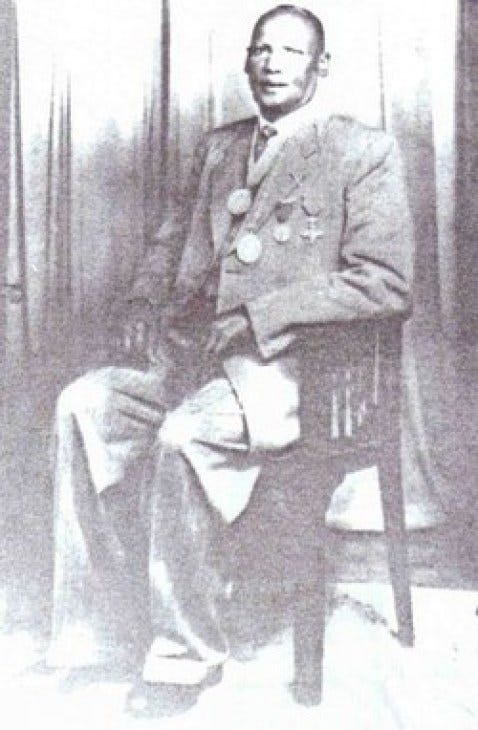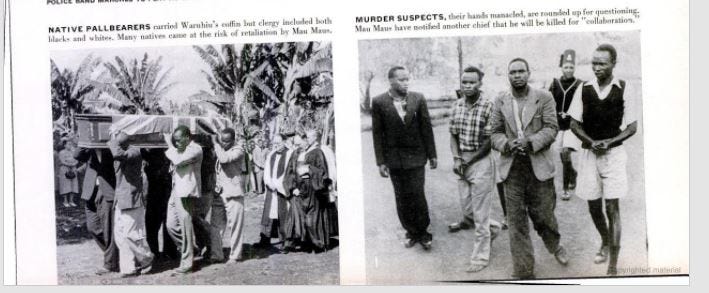Kiburi House: The former Mau Mau headquarters in Nairobi
The building housed Mau Mau War Council and pioneer trade unions

When I was first invited to Kiburi House to have a look at what was once the seat of Mau Mau War Council headquarters, I was shocked at how this nondescript building along Nairobi’s Kirinyaga Road could harbor so much history.
Kiburi House is, still, little known. Yet, when the story of indigenous African entrepreneurship in Nairobi, and quest for freedom, is told this house will always feature.
Though gazetted as national monument, this house hardly features among the celebrated buildings in Nairobi but it gets honorary mentions in some history books as the centre of trade union movement per-independent Kenya.
The story of Kiburi House is also the story of Kenya Fuel and Bark Supplying Company which purchased the building in 1948 – and whose official invited me to have a look at their long history.
The pioneer company was founded the as Kiambu Fuel Supply Co. in 1943 and by 1945 the company had spread to Murang'a, Nyeri, and Embu Districts, and members decided to change its name to the Kenya Fuel and Bark Supply Company Ltd.
Documents held by the company, and which I think should be properly archived, show that it was registered on May 2, 1946. The inscription seal reads: Colony and Protectorate of Kenya. This was one of the first limited liability companies owned by indigenous Kenyans and its founder chairman was Kiburi wa Thumbi.
In 1948, the newly-registered company bought a building in downtown Nairobi and named it Kiburi House in honour of the founder chairman. It was the first building owned by indigenous Kenyans in central Nairobi.
The company was unique in its own ways. The original constitution states that only Kikuyu would buy shares in the company; though in those days Meru and Embu were counted as Kikuyu.
The earlier minutes of this company were written in Kikuyu. One document dated September 7, 1963 shows that Kiburi House was bought for Sh 80,000. When the house was bought, nobody was staying in it though the upper floors had been designed as lodgings.
The document titled “Uhoro wa Nyumba ya Kiburi (Information about Kiburi House) and typed on the company’s letter heads indicates that the owners were “wood fuel contractors and wattle bark agents”.
But Kiburi House was also the political headquarters of the freedom movement. The names of the company shareholders also reads like who is whom in the Kenya African Union (KAU) politics. KAU was the predecessor to KANU, the party that won Kenya’s independence.
The company membership shows that Jomo Kenyatta, Kenya’s first President, was shareholder number 937 while his first wife, Wahu Kenyatta, was shareholder number 1421.
During the height of freedom in 1950s Kiburi House became the meeting point of KAU top officials. Because of these, unidentified visitors were not allowed inside the building. Kiburi House used to screen the visitors because this building also housed the Mau Mau War Council – by then an underground movement in Nairobi.
One interesting bit of history was that Kiburi wa Thumbi was riding in the same car with Senior Chief Waruhiu when the later was shot dead by Mau Mau. Mr Thumbi was sitting at the co-driver’s seat while Waruhiu was at the back with a man identified as Kirichu wa Murimu. Court records indicated that their car was stopped by three men who had blocked Senior Chief Waruhiu’s Hudson car. He first saluted him: “Yes, Senior Chief Waruhiu.” Kiburi thought he had a letter but the man pulled out a .38 Smith and Wesson Revolver and shot Waruhiu (below).

It was Waruhiu’s death that triggered the State of Emergency in 1953. With the State of Emergency declared, as the war of independence reached its height, the first target was Kiburi House which was the official headquarters of various trade unions, political parties and African newspapers. The colonial soldiers broke the doors but could not break into a strong safe cemented on the wall. One of the Mau Mau insiders escaped with the keys and it had not been opened for ages. Most likely, it could hold some Mau Mau secrets.
KAU, then led by Jomo Kenyatta mourned the death of Waruhiu and denounced the murder as “cowardly and dastardly act committed against such a leader and a friend of the people.” They described his death as an “irreparable loss”.

While Kenyatta represented KAU during the burial, he would later be arrested and accused of managing Mau Mau. But Kiburi remained a significant building.
Key among the trade unionists who had offices here were Chege Kibachia and Makhan Singh. The building also housed the editorial offices of Afrika Mpya and Wiyathi – two anti-colonial newsletters.
What we now know of Kiburi House is that it was purchased from the estate of Col Ewart Grogan who was a trustee of Wright Settlement.
In 1947, the value of Kiburi House was put as Shs 70,000 by Pioneer General Assurance company. In October 9, 1949, the then Nairobi Town Clerk agreed in a letter that Kiburi House rooms to be changed from lodgings to offices. This allowed KAU members to have offices in the building.
Originally, the company had 5,675 shareholders – and, when I visited, an official lamented that most families do not know their fathers and mothers owned shares. Many had no forwarding addresses in the register – and some are written PO Tanganyika.
The 1948 register only gives the name, the clan and village. But most of these people were moved at the height of emergency and during the land consolidation exercise.
But Kiburi House, as a national monument, remains a unique house in the history of Kenya.




I should find a way to check what my grandfather Kiburi Thumbi 2 (half brother to the Kiburi wa Thumbi in Sr Chief Waruhiu's car) left in shares. My great grandfather Thumbi wa Kabi had 4 wives, the 2nd of whom had my grand father Kiburi 2 (They were Kiburi 1, 2, 3 and 4) There's a photo in my parents house with the four of them.
I wish I could also know of my father's share I have just found certificate no. 4212 Harun Mwangi Mucheru. Which was issued on 3/4/1948. The former Kenya fuel and bark supply company limited. Am Wallace Mucheru